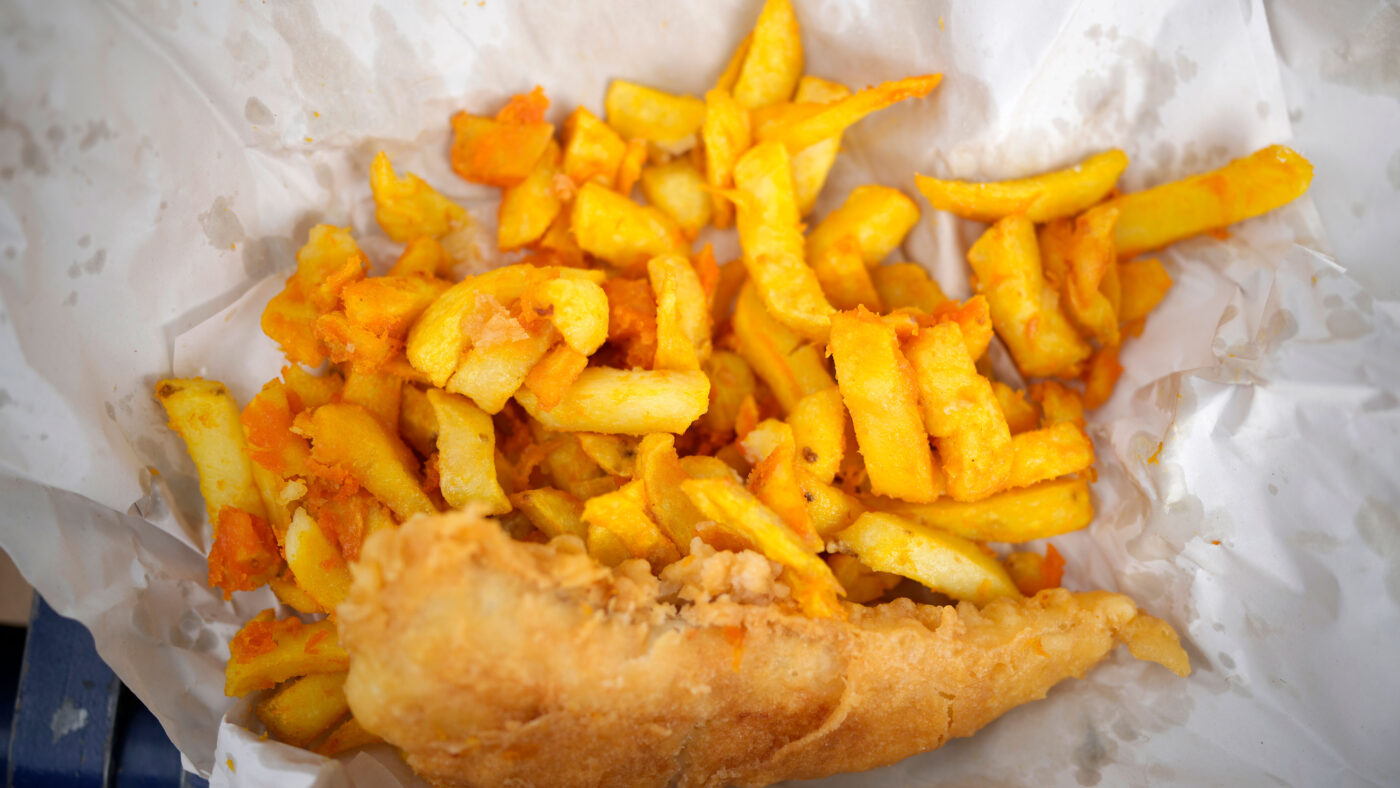Despite all the challenges from pizzas, burgers,kebabs and fried chicken, old-fashioned fish and chips remains not just part of our rich culinary heritage, but a very popular meal. It regularly comes top of polls and research on the most popular take-away meal and also happens to be cheaper than most other options.
As with so many popular foods, however, the cost of living crisis has had a pronounced impact on the humble chippy, with rising prices for fuel, cooking oil and ingredients.
That means, tragically, that small businesses are under threat from rising catering costs; it’s even reported that as many as a third of the UK’s fish and chip shops – some 3,000 – risk closure. Energy costs have trebled, the war in Ukraine and poor harvests have helped doubled the cost of both sunflower oil and potatoes. To top it off, Russian fish now attracts a very high tariff in response to Putin’s invasion.
Thankfully, there is good news over the horizon, literally.
Whereas the EU places high tariffs on food supplies from outside the EU (to protect its own food producers) Brexit Britain can now decide for itself and in sectors where we do not grow or process foods there is no need to erect needless barriers that make food dearer.
That means there is a way we can make fish and chips even more price competitive – by using the Brexit bonus of our membership of the CPTPP, which has eliminated the tariff (worth up to 18% of additional cost) on Malaysian palm oil.
That’s particularly important given that sunflower oil is now 20% more expensive than palm. That change is unsurprising, given that Ukraine and Russia make up nearly 80% of global crude sunflower oil experts. With Ukrainian production hobbled by the war and Russian exports embargoed, we’re in for a sustained period of shortages and, as a result, higher prices.
Being outside the EU means we can pivot to palm oil without the tariff we paid before, and do so in the knowledge that it is now produced in a sustainable way that minimises deforestation. Indeed, according to Global Forest Watch, primary forest loss in Malaysia decreased by almost 70% between 2014 and 2020. The EU, however, continues to discriminate against palm oil imports, using deforestation as a fig leaf for protecting its own vegetable oil interests.
Note too that palm oil also has a far higher yield per hectare – meaning it requires far less land to grow 1000 litres of vegetable oil – making it 6-10 times more productive than other oilseeds such as rapeseed, soybean, olive, or sunflower.
The great news for chippies in particular is that sustainable palm oil can handle frying without spoiling, while its low production costs make it cheaper than frying oils such as cottonseed or sunflower. What’s more, unlike traditional beef dripping, palm oil is suitable for both vegetarians and vegans.
Palm oil is just one example of food imports from CPTPP members that will be competitively priced against the same foods from the EU. Our manufacturers and suppliers should be scouring the price lists and looking to get new, cheaper deals in place. The same will go for other commodities and components and there should be no room for sentiment.
Let’s start benefitting from CPTPP, it’s time to fire-up the fryer with CPTPP-sourced palm oil and get the price of a fish supper down.
Click here to subscribe to our daily briefing – the best pieces from CapX and across the web.
CapX depends on the generosity of its readers. If you value what we do, please consider making a donation.


